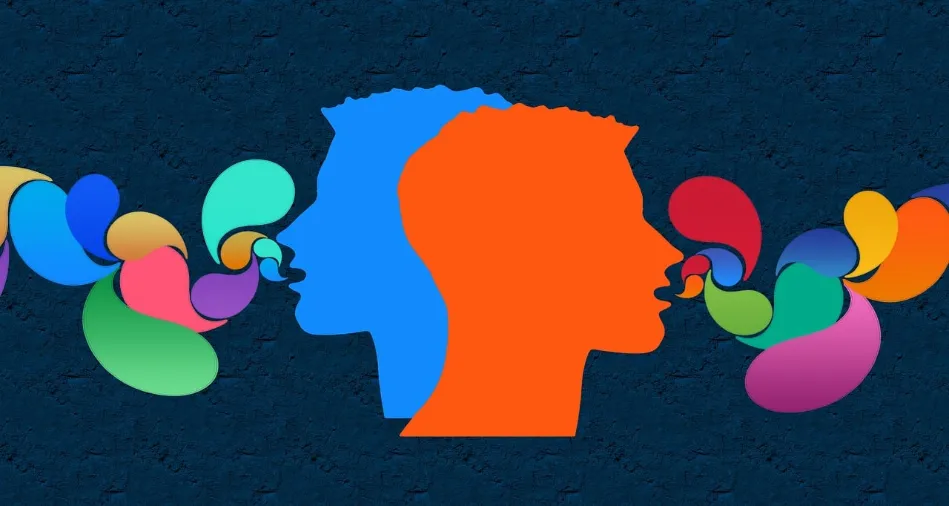[read-time]

In the realm of personality psychology, the Dark Triad theory has gathered significant attention for its exploration of three distinct yet interrelated personality traits: narcissism, Machiavellianism, and psychopathy. This theory delves into the darker aspects of human nature, offering insights into the motivations, behaviors, and tendencies of individuals who exhibit these traits.
The Dark Triad concept was first introduced in the early 2000s by psychologists Delroy L. Paulhus and Kevin M. Williams. It emerged as a framework to study the commonalities and differences among these three personality theories, which were previously studied separately. By combining them under one umbrella, researchers aimed to gain a more comprehensive understanding of the underlying mechanisms that drive these traits and their potential implications.
There are some valid criticisms and controversies surrounding the Dark Triad theory, which you will read of below. You will also find five strategies for dealing with individuals with Dark Triad traits.
The three components of the Dark Triad – narcissism, Machiavellianism, and psychopathy
The Dark Triad theory encompasses three distinct but related personality traits:
1. Narcissism
Narcissism is characterized by an inflated sense of self-importance, a strong desire for admiration, and a lack of empathy for others. Individuals with narcissistic traits often exhibit grandiose behavior, a sense of entitlement, and a tendency to exploit others for their own benefit. They may also display an excessive need for attention and validation from others.
2. Machiavellianism
Machiavellianism is named after the Italian philosopher Niccolò Machiavelli, known for his pragmatic and manipulative approach to power and politics. Individuals with Machiavellian traits tend to be strategic, cunning, and willing to exploit others for their own gain. They may engage in deceptive behaviors, have a cynical view of human nature, and prioritize their own interests over ethical considerations.
3. Psychopathy
Psychopathy is often associated with a lack of empathy, remorse, and emotional depth. Individuals with psychopathic traits may exhibit impulsive and reckless behavior, a disregard for social norms and rules, and a tendency towards manipulation and exploitation of others. They may also display superficial charm, a lack of guilt or remorse, and a callous attitude towards the well-being of others.
While these traits are distinct, they share some common characteristics, such as a lack of empathy, a willingness to exploit others, and a tendency towards self-promotion and manipulation.
Origins and research behind the Dark Triad theory
The origins of the Dark Triad theory can be traced back to the early 2000s when psychologists Delroy L. Paulhus and Kevin M. Williams recognized the need to study these three personality traits together. Their initial research aimed to explore the potential overlap and distinctions among narcissism, Machiavellianism, and psychopathy.
Since its inception, the Dark Triad theory has attracted considerable attention from researchers across various fields, including psychology, organizational behavior, and criminology. Numerous studies have been conducted to investigate the prevalence, backgrounds, and consequences of these traits in different contexts.
One of the key findings from the research is that individuals who score high on one of the Dark Triad traits tend to exhibit elevated levels of the other two traits as well, suggesting a shared underlying tendency. However, the extent of overlap and the specific manifestations of these traits can vary among individuals.
Signs and traits of individuals with the Dark Triad personality
Individuals who exhibit traits associated with the Dark Triad often display a distinct set of behaviors and tendencies. While the specific manifestations may vary, some common signs and traits include:
- Lack of empathy and remorse: Dark Triad individuals often struggle to understand and relate to the emotions and experiences of others. They may display a lack of concern for the well-being or feelings of those around them.
- Manipulation and exploitation: These individuals may engage in manipulative tactics and exploit others for their own benefit, without regard for the consequences or harm caused.
- Grandiose sense of self-importance: Narcissistic tendencies can lead to an inflated sense of self-worth and a belief that they are superior to others.
- Impulsivity and risk-taking: Dark Triad individuals may exhibit impulsive behavior and a propensity for risk-taking, often without considering the potential consequences.
- Superficial charm and charisma: Some individuals with Dark Triad traits may possess a superficial charm or charisma that allows them to initially present a favorable impression, which can be used for manipulation.
- Cynical and distrustful views: They may hold a cynical and distrustful view of human nature, believing that others are primarily motivated by self-interest.
- Lack of long-term goals or commitments: Dark Triad individuals may struggle with maintaining long-term goals or commitments, often prioritizing short-term gratification or personal gain.
It’s important to note that these traits exist on a continuum, and not all individuals who exhibit some of these characteristics necessarily possess the full Dark Triad personality.
The impact of the Dark Triad in different aspects of life – relationships, work, and society
The presence of Dark Triad traits can have significant implications across various domains of life, including interpersonal relationships, professional settings, and societal interactions.
Relationships
In the context of romantic relationships or close personal connections, individuals with Dark Triad traits may struggle to form and maintain healthy, long-lasting bonds. Their lack of empathy, tendency towards manipulation, and self-serving behaviors can lead to conflict, mistrust, and emotional harm to their partners or loved ones.
Work
In professional settings, Dark Triad traits can manifest in various ways. Narcissistic tendencies may lead to a desire for power and status, potentially fueling workplace politics and conflicts. Machiavellian individuals may engage in deceptive tactics or unethical practices to advance their careers or gain advantages over others. Psychopathic traits, such as impulsivity and a lack of remorse, can contribute to counterproductive work behaviors or even workplace misconduct.
Society
On a societal level, the presence of Dark Triad traits can have broader implications. Individuals with these traits may be more likely to engage in antisocial or criminal behaviors, contributing to societal harm or disruption. Additionally, their lack of empathy and concern for others can potentially influence decision-making processes or policies that impact larger communities or populations.
It’s important to note that not all individuals with Dark Triad traits will necessarily exhibit negative or harmful behaviors in all aspects of their lives. The manifestation and impact of these traits can vary depending on individual circumstances, environmental factors, and personal choices.
Dark Triad in popular culture and media
The concept of the Dark Triad has captured the imagination of writers, filmmakers, and artists, leading to numerous depictions and representations in popular culture and media.
Literature and Film
Many fictional characters in literature and film have exhibited traits associated with the Dark Triad, often portrayed as villains, anti-heroes, or complex protagonists. Examples include characters like Iago from Shakespeare’s “Othello,” Patrick Bateman from Bret Easton Ellis’s “American Psycho,” and Hannibal Lecter from Thomas Harris’s “The Silence of the Lambs” series.
Television and Web Series
Television shows and web series have also explored the darker aspects of human nature through characters exhibiting Dark Triad traits. Examples include Walter White from “Breaking Bad,” Cersei Lannister from “Game of Thrones,” and Joe Goldberg from “You.”
Music and Art
The themes of power, manipulation, and emotional detachment associated with the Dark Triad have been explored in various forms of art, including music and visual arts. Some artists have used their work to comment on or critique the darker aspects of human nature, while others have embraced or even glorified these traits.
These representations in popular culture have contributed to a broader understanding and discussion of the Dark Triad theory, sparking debates about the ethical implications, societal impact, and psychological underpinnings of these personality traits.
The Dark Tetrad – an extension of the Dark Triad theory
While the Dark Triad theory has gained significant traction in psychological research, some scholars have proposed an extension known as the Dark Tetrad. This expanded model includes a fourth personality trait: sadism.
Sadism is characterized by a tendency to derive pleasure or gratification from inflicting pain, humiliation, or suffering on others. Individuals with sadistic traits may engage in cruel or aggressive behaviors, often without remorse or empathy for their victims.
The inclusion of sadism in the Dark Tetrad model aims to capture a broader range of malevolent personality traits and better understand the potential interplay and overlap among these constructs. However, the Dark Tetrad is a relatively newer concept and has garnered less empirical research compared to the Dark Triad.
Criticisms and controversies surrounding the Dark Triad theory
While the Dark Triad theory has provided valuable insights into the darker aspects of human personality, it has also faced criticism and controversy within the psychological community.
Ethical Concerns
Some researchers have raised ethical concerns regarding the study and potential applications of the Dark Triad theory. There are concerns that focusing too heavily on these traits could contribute to stigmatization or discrimination against individuals who exhibit certain personality characteristics.
Measurement Issues
Another criticism revolves around the measurement and assessment of the Dark Triad traits. Some scholars argue that the existing self-report measures may be susceptible to social desirability biases, where individuals may underreport or misrepresent their true levels of these traits.
Cultural and Gender Differences
The generalizability of the Dark Triad theory across different cultures and genders has also been questioned. Some researchers suggest that the manifestation and interpretation of these traits may vary depending on cultural norms, values, and gender roles.
Oversimplification Concerns
Critics argue that the Dark Triad theory may oversimplify the complexities of human personality by grouping diverse traits under a single umbrella. They suggest that a more nuanced approach, considering individual differences and contextual factors, may be necessary for a comprehensive understanding of these personality constructs.
Despite these criticisms, the Dark Triad theory continues to be a subject of active research and debate within the field of psychology, as scholars strive to refine and expand our understanding of these complex personality traits.
Five Strategies for dealing with individuals with Dark Triad traits
Interacting with individuals who exhibit Dark Triad traits can be challenging and, in some cases, potentially harmful. Here are some strategies that may help in navigating these situations:
- Maintain Boundaries: It’s crucial to establish and enforce clear boundaries when dealing with individuals with Dark Triad traits. Set limits on what you are willing to accept or tolerate, and be prepared to disengage or distance yourself if necessary.
- Trust Your Instincts: If you experience feelings of unease, discomfort, or a sense that something is “off,” trust your instincts. Dark Triad individuals may employ manipulation tactics, so it’s essential to stay attuned to your gut feelings.
- Seek Support: Dealing with individuals with Dark Triad traits can be emotionally taxing. Seek support from trusted friends, family members, or professionals if you find yourself in a difficult or potentially harmful situation.
- Avoid Confrontation: Direct confrontation or attempts to change the behavior of individuals with Dark Triad traits may be ineffective or even counterproductive. Instead, focus on protecting yourself and setting appropriate boundaries.
- Foster Empathy and Emotional Intelligence: While individuals with Dark Triad traits may lack empathy, cultivating your own emotional intelligence and empathy can help you navigate these situations with greater understanding and resilience.
It’s important to prioritize your own well-being and safety when dealing with individuals who exhibit Dark Triad traits. Remember that their behavior is a reflection of their own personality traits and not a personal failing on your part.
The Takeaway
The Dark Triad theory has shed light on the darker aspects of human personality, offering insights into the underlying mechanisms and potential consequences of narcissism, Machiavellianism, and psychopathy. While these traits may be present to varying degrees in individuals, their combination can have significant implications in various aspects of life, including interpersonal relationships, professional settings, and societal interactions.
Understanding the Dark Triad theory can help raise awareness and promote a deeper understanding of these personality traits, enabling individuals to navigate and respond to challenging situations more effectively. It also highlights the importance of fostering empathy, emotional intelligence, and ethical decision-making in both personal and professional contexts.
However, it is crucial to approach the Dark Triad theory with a degree of caution, recognizing the potential for oversimplification and the need for further research to address cultural and gender differences, as well as measurement issues.
As our understanding of the Dark Triad and related concepts continues to evolve, it is essential to engage in responsible and ethical research practices, prioritizing the well-being of individuals and society as a whole.
Feel free to leave a comment below; we love to hear from you.











